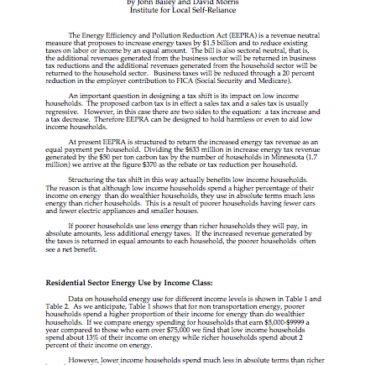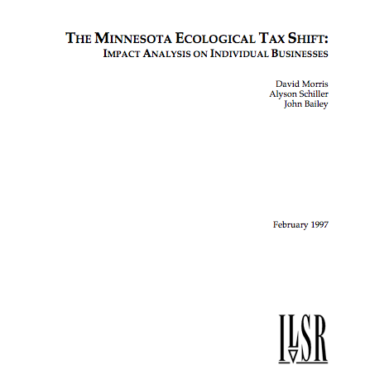Ethanol and Gasoline
Ethanol and Gasoline by David Morris April 22, 1997 – published in St. Paul Pioneer Press This Earth Week let’s talk about ethanol and gasoline. Back in the early 1920s car companies were designing more powerful, higher compression cars. They needed an additive to boost octane and eliminate engine knocking. With an octane rating of 110 … Read More





